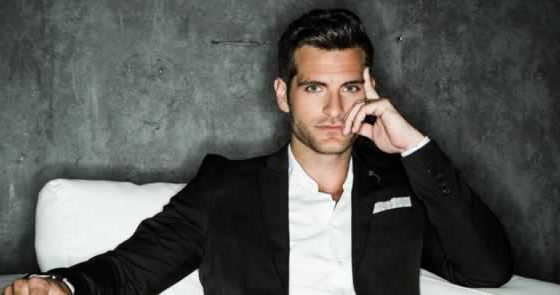Mention “chivalry” today and the conversation quickly turns toward subjects of romance and courteousness. Gentlemen holding the door for ladies, paying for dinner, offering their seats on a crowded bus � these are the images that typically spring to mind whenever issues of gender roles, etiquette, male chauvinism and the revival of chivalry are under discussion. The word “chivalry” is used with increasing frequency merely as a synonym for “courtesy.”
Ironically, we rarely associate chivalry with the notion of “excellence” any longer. In fact, our ultra-gallant perception of chivalrous behavior is nearly the antithesis of excellence. Anyone seeking a competitive edge in sports, business, school or politics is urged to abandon those noble Victorian vestiges of restraint, fair play and honor in order to improve their chances of victory. Remember Jimmy Cagney’s now-famous ganster movie sneer, “I’m gonna knock the tradition and chivalry right outta ya,”? The implicit message in those words is that chivalry is an impediment to success and achievement — whether in a street brawl or in the executive boardroom.
Yet despite our skewed perspective of chivalry, this code of the medieval warrior has many valuable insights to offer regarding excellence in the modern world. Medieval knights were not delicate, romantic fops; they were highly skilled soldiers who were also shrewd politicians and capable corporate managers. They lived in a feudal society that was a complex and unforgiving web of social, spiritual and economic obligations — and in that way the life of a medieval knight was not unlike the lives of today’s men. They admired skill, strength and achievement, and would have had no use at all for a code of honor that admonished the pursuit of excellence. In fact, one of main aspects of the code of chivalry was to help knights understand how to achieve the highest standard of excellence: a quality they called “prowess.”
In chivalric terms, prowess is a complex concept that encompasses a variety of the attributes a knight was expected to have. Author and historian Richard Kaeuper describes prowess as: “Great strength, hardiness and skill … as well as the courage and determination that must inform success.” Without prowess a knight, no matter how gracious or courteous he might be, could not truly be considered an example of chivalry.
Perhaps no other author explores the notion of prowess in greater depth than Sir Geoffroi de Charny, a 14th century French knight of great renown. Charny wrote a book entitled La Livre de chevalerie, which reveals a strong understanding of the connection between chivalry and the ability to excel in a competitive enterprise. Charny explains this connection with the simple phrase: Qui plus fait, mieux vault. (“He who accomplishes more is of more worth.”)
Charny’s book is one of the gems of medieval literature: A book written by a knight for knights on the subject of how to be a good knight. Charny details the many ways in which a knight can be of value, including competing in jousting tournaments, traveling on spiritual pilgrimages to distant lands, governing a manor justly, contributing to charity and, of course, serving in military campaigns for just and honorable causes.
Although Charny recognizes there are degrees of prowess inherent in all of these activities, according to him the greatest measure of prowess is found in a knight whose energies are continually directed toward finding better ways to be of service to others — as role models, as leaders, as administrators and as champions. Greater prowess, he says, is found in greater actions of service, and a knight who does not seek prowess lives a shameful life. He says:
“Men of prowess know how to strive toward the most worthy course of action, whether in relation to deeds of arms or in relation to other forms of behavior appropriate to their rank. Then they reflect on, inform themselves, and inquire how to conduct themselves most honorably in all circumstances.
This they do quickly and gladly, without waiting for admonitions or exhortations.”
What does Charny’s philosophy of prowess tell us about the pursuit of excellence in today’s world? We don’t compete in jousting tournaments nor govern castles any longer, so how can we apply ideal of prowess to life in the 21st century?
We may have shed chain mail in favor of work uniforms or business suits, but we certainly want to live honorable and rewarding lives in today’s world. As Charny explains, we must recognize that there is value and personal reward to be found in any activity that contributes to a healthy community, from playing on a weekend softball league to pursuing career goals to serving as a volunteer firefighter or law enforcement officer — as long as such activities are undertaken with honor, fairness and integrity.
Yet, as Charny says, “He who accomplishes more is of more worth.” No matter how much we give to our families, our churches or our communities, we should always seek ways to be of greater value and of more service. Prowess is found most prominently in the knight who does not work “for booty or payment of gold,” as Charny says, but who feels a deep and spiritual reward in any endeavor that brings comfort, benefit and security to others.
Because, in the end, as Charny explains, the pursuit of prowess is not a road leading to personal glory or acclaim, but to a greater sense of spiritual enrichment and pious respect. The talents, skills or wisdom we use in seeking excellence throughout our lives are gifts from God, and thus humble gratitude, not vanity or arrogance is a fitting attitude for even the most accomplished knight. Without graciousness, faith and humility, Charny says that prowess will “melt away just as certainly as snow melts away when exposed to the powerful heat of the sun.”
You don’t need to be a placid, self-effacing romantic to be a knight in shining armor. You can live by the code of chivalry and still be a spirited, successful competitor seeking ever-higher standards of excellence in any intellectual, professional or athletic endeavor. Men today, like those worthy knights of old, must realize that we cannot excel if we work only for vain, selfish goals — the noble standard of prowess reminds us that excellence must always be combined with service and faith. We can live up to the knightly ideal of chivalry only when we see that excellence and contribution go hand in hand, and he who accomplishes more is of greater worth in everything he does.
Copyright © MenTodayOnline.com, 2005. Used with permission.
Scott Farrell is a writer and speaker who focuses on topics of knighthood and the code of chivalry. He is the director of the Chivalry Today educational program, which explores the principles of chivalry as a guide for ethics and spirituality in the modern world. His seminar, “Leadership Secrets of the Code of Chivalry” has been presented to corporate audiences throughout the southwestern United States, and he regularly speaks on the topics of chivalry and knighthood at schools, churches, libraries and Boy Scout troops. More information about the code of chivalry is available on his award-winning website: http://www.chivalrytoday.com/
[schemaapprating]










